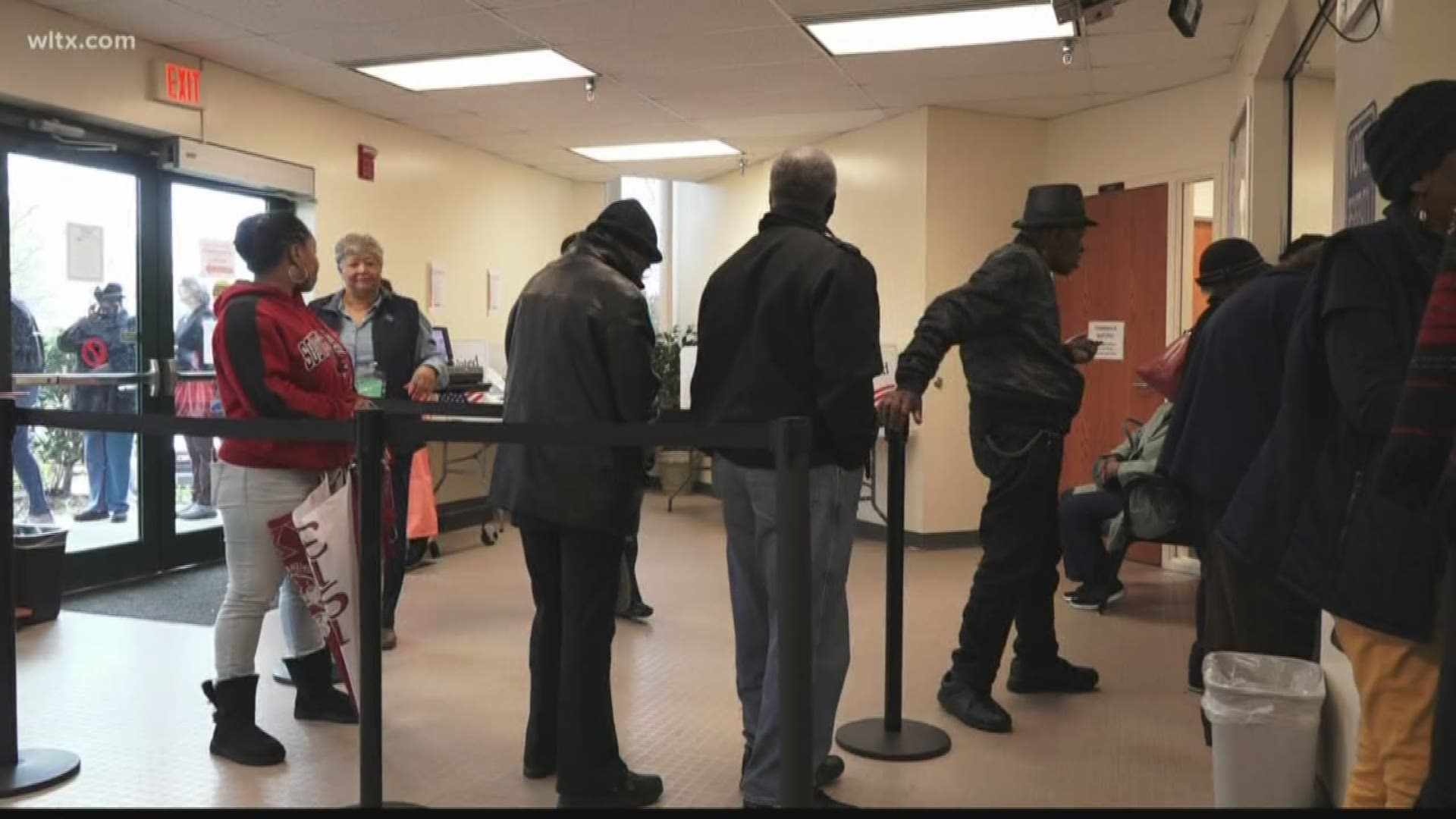COLUMBIA, S.C. — In just a few days, South Carolina voters will head to the polls to pick their preferred Democratic presidential candidate.
South Carolina could play a significant role in the process as the last contest before Super Tuesday, when many states will make their choices.
Statewide: South Carolina’s open primaries make it hard to speculate on turnout
This year will be the state’s first solely Democratic presidential primary since the South Carolina State Election Commission (SEC) took over in 2008.
SEC spokesman Chris Whitmire said it's hard to know how many will vote.
“Since 2008 we haven't had a standalone Democratic presidential primary, so we don't have a true comparison to look at. So, this year will set some marks for us and give us something to look at in the future,” Whitmire said.
So far, the state has collected roughly 25,000 absentee ballots, both by mail and in-person. At this time in 2016, the Democratic primary brought in 20,000 absentee ballots.
“Of course it's not apples to apples, in 2016 you had two presidential primaries, so it's certainly encouraging as far as turnout goes that we're seeing higher numbers,” Whitmire said.
He added absentee voting historically increases each year, as voters use it as a convenient option.
It’s also hard to determine trends in primary voting since the state is relatively new to handling the elections of each primary, according to Whitmire.
When Republicans held a standalone primary in 2012, 21.3 percent of voters participated.
Democratic participation has fluctuated significantly in the two years they’ve held a primary under the SEC’s control. In 2008, eventual President Barack Obama won with 23.7 percent of voters participating. In 2016, eventual nominee Hillary Clinton won with 12.6 percent of voters participating.
In comparison, 25.2 of voters participated in the 2016 GOP primary. But, the Democratic primary had more participants in 2008, 23.7 percent compared to the GOP’s 19.8 percent.
Overall, in years with two primaries, participation averages out to about 40 percent. In 2012, the one year with only a Republican primary, participation was 21.3 percent.
This year, there’s been speculation Republican-inclined voters may participate in the Democratic primary. But, Whitmire said it is very difficult to quantify what it would look like if it happened.
“How many of those people exist? We don't have the data to know that, again, state law certainly allows every registered South Carolina voter to vote in the presidential primary,” Whitmire said.
The State Election Commission does not take a position on if South Carolina should have open or closed primaries, according to Whitmire.
Richland County: some voters say their mind is made up as election director hopes for smooth process
As of noon Monday, more than 1,900 people have voted in-person absentee in Richland County. Alma Mills and Theile McVey are two of those voters.
“I think this is probably the most important election cycle that I've seen in my lifetime and I'm fighting hard in my neighborhood and community to get people out to vote. Because, I just feel like we need a change in Washington to a more Democratic administration,” Mills said after voting on Monday.
Mills said she’s a lifelong Democratic voter and has seen her community active in the process with yard signs and candidate’s canvassers visiting the neighborhood.
“I think it's the most important thing we can do. I think I've voted in every single election that we've ever had that I've been eligible to vote in. And this year, importantly, with the assault on our institutions by the President that we've got a lot of work to do,” said Theile McVey.
McVey described herself as a more recent Democratic voter, saying she’s voted Democratic the last 10-15 years.
And, even with a few days remaining before Saturday and another debate Tuesday night in Charleston, their minds were made up.
“I voted for Joe Biden, I think he has the best chance to beat President Trump, he's a moderate, he's a known quantity,” said McVey.
McVey added she liked Cory Booker and Kamala Harris before they dropped out. She also said she liked Elizabeth Warren but eventually decided to vote with Biden.
Mills said it was also a tough choice, but she woke up Monday and knew who she was voting for in the primary.
“I had three candidates I was vacillating against and for today, and I finally made my mind up today on which one of those three I was going to give my vote to. Because, I want my vote to count,” Mills said.
Mills said she was focused on issues affecting retirees and Medicare and declined to name which candidate she chose.
Absentee in-person voting continues through Friday from 830am to 5pm daily.
Interim Richland County Election Director Terry Graham said they’ve had no significant issues.
“One thing I promised myself and I promised the staff and also the voters of Richland County, when I became the interim was I promised them a fair and impartial election. I wanted to bring back the integrity and trust back to Richland County, cause you have had some problems in the past. And just want to make sure that they trust us again,” Graham said.
In years prior, Richland County has had significant issues on election days, including missed votes in 2018.

